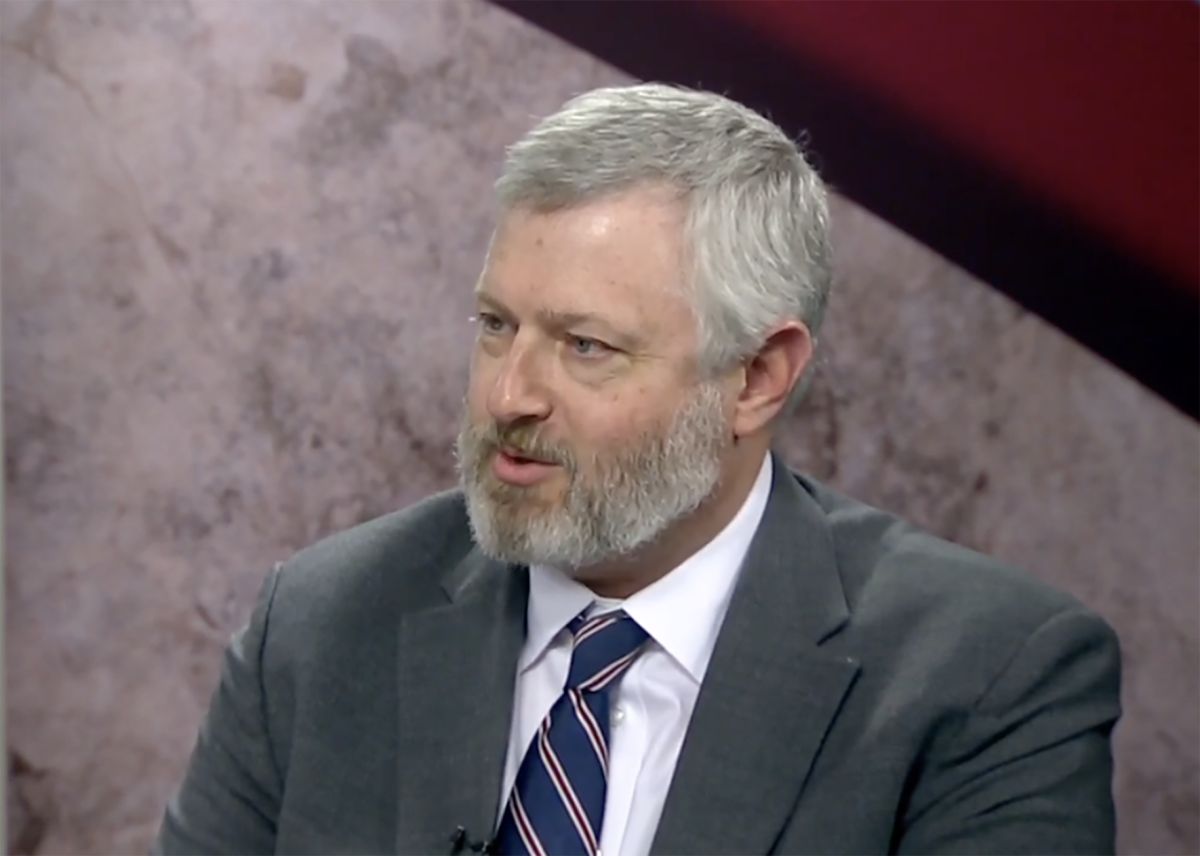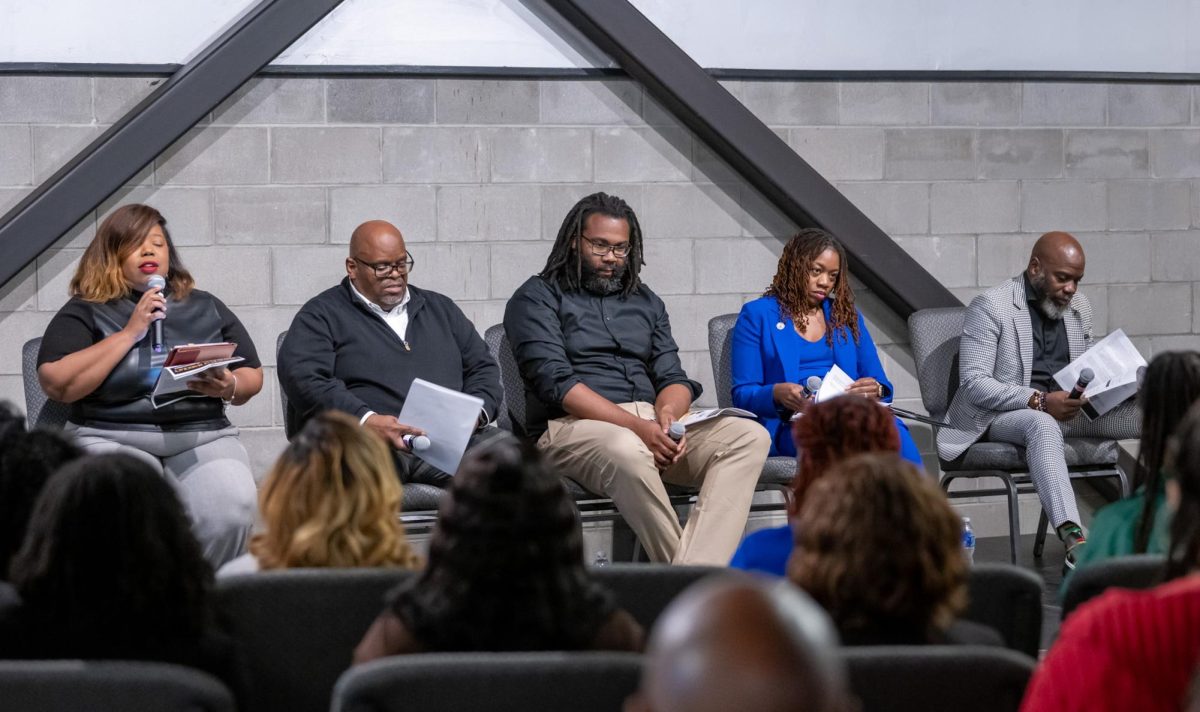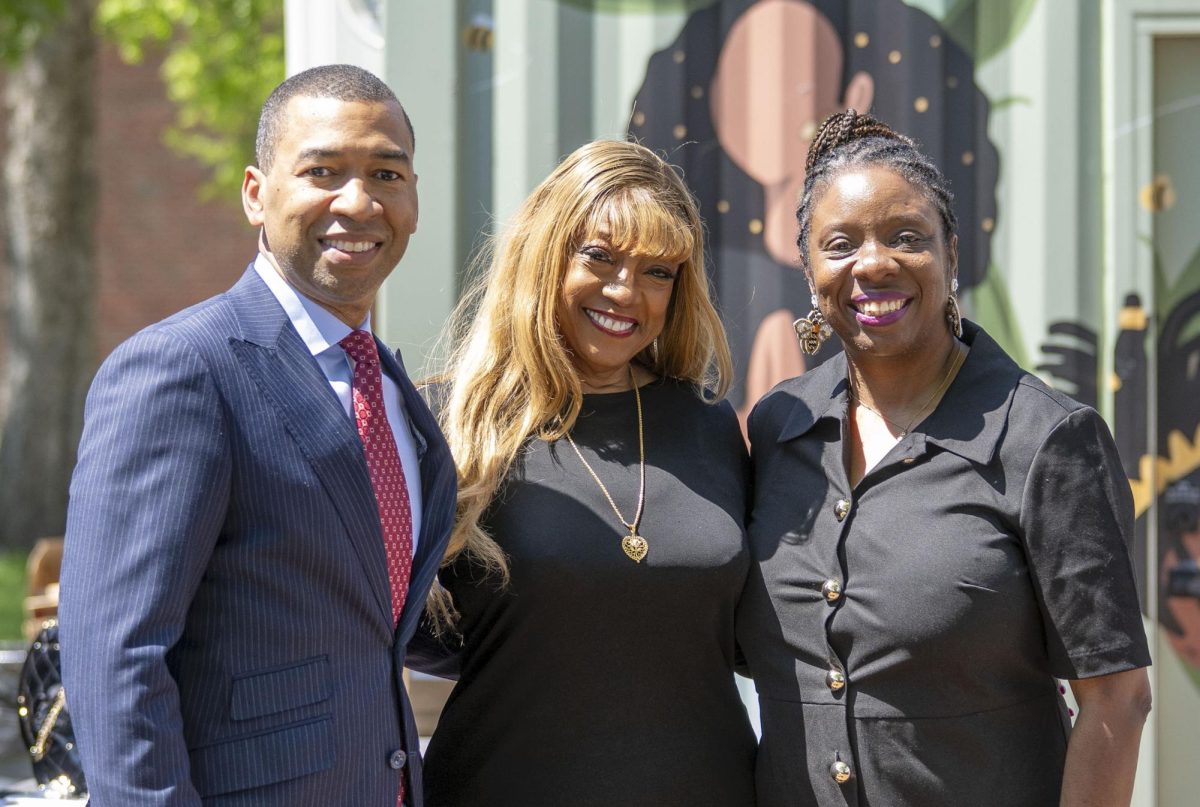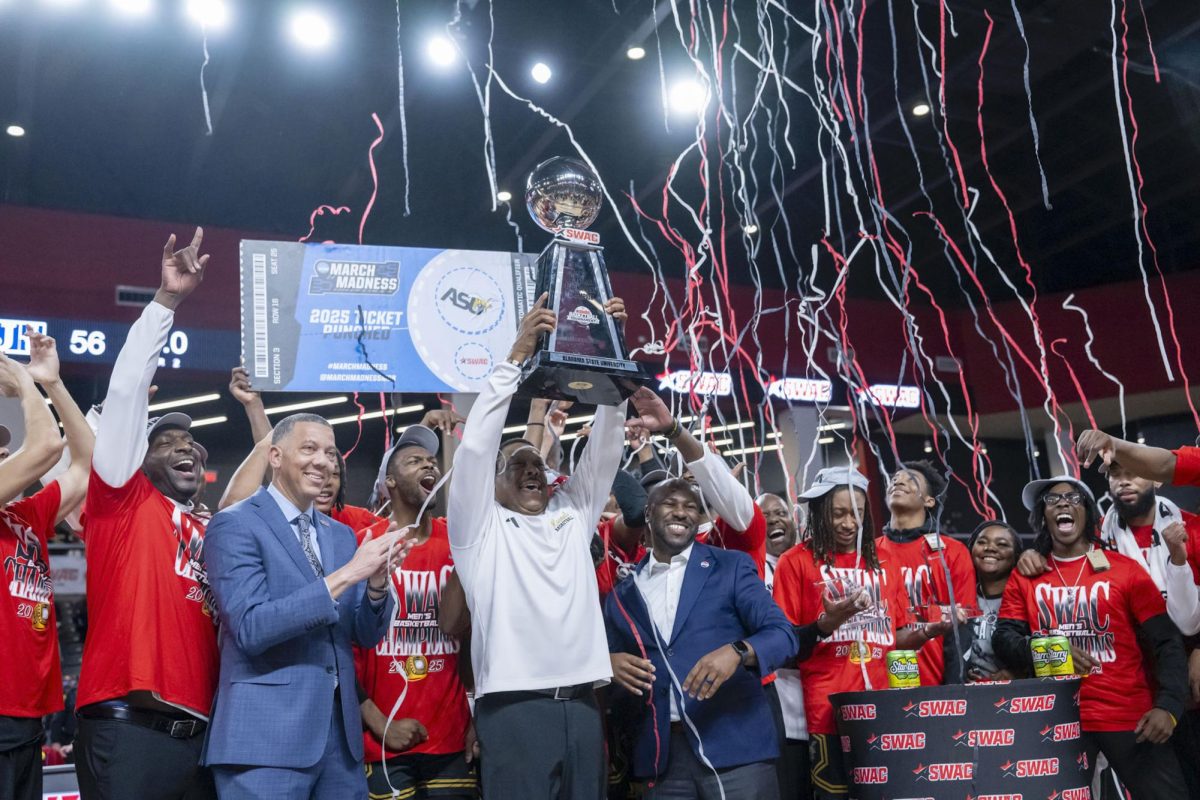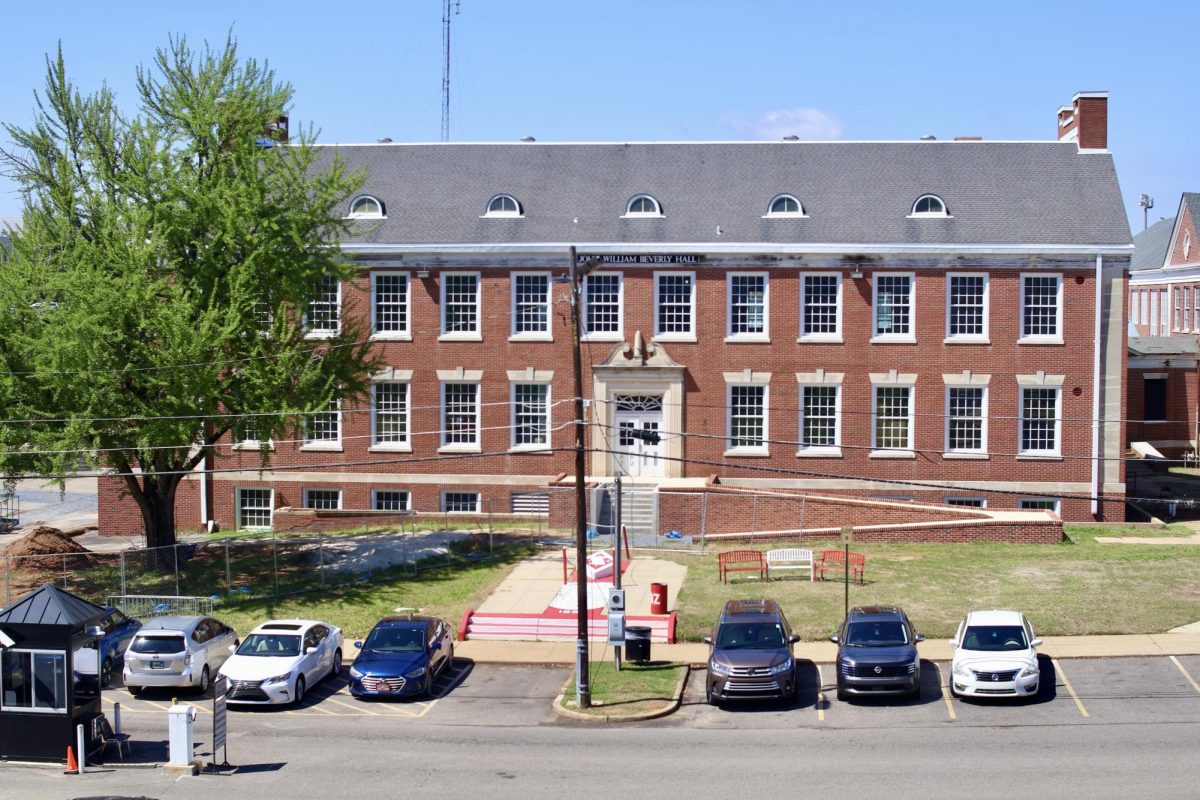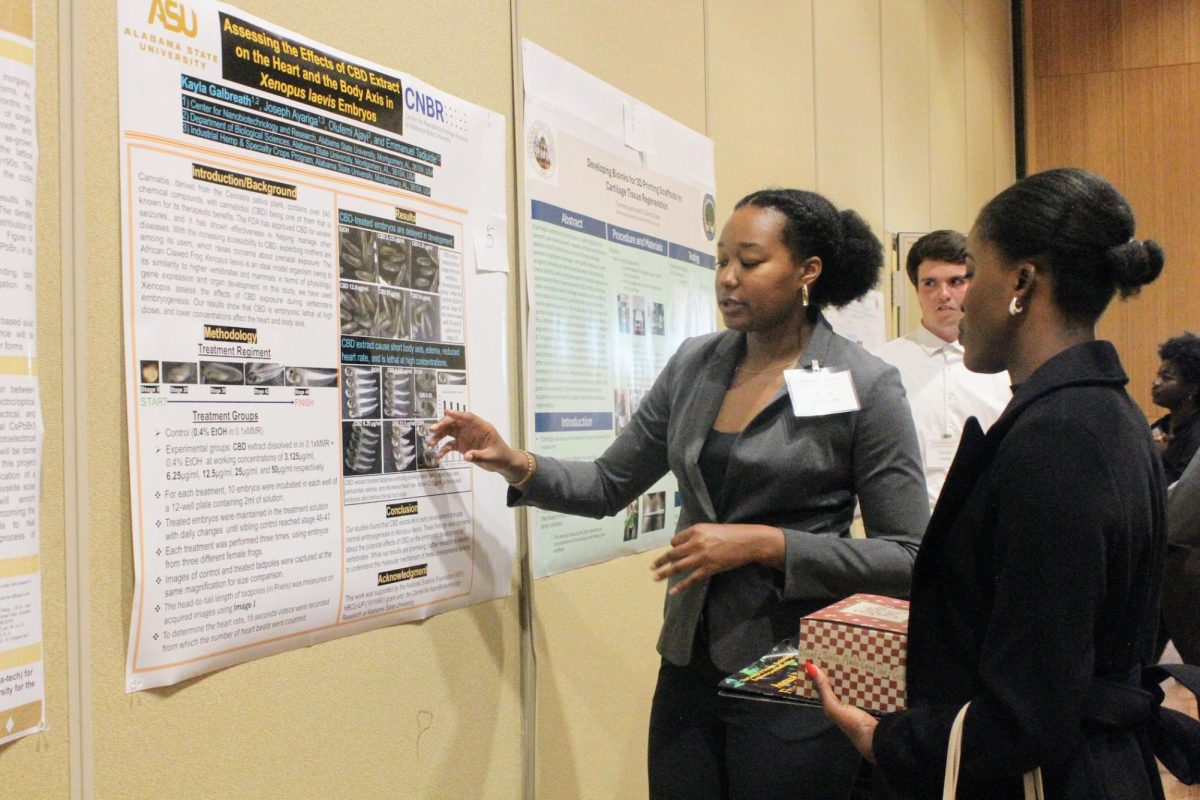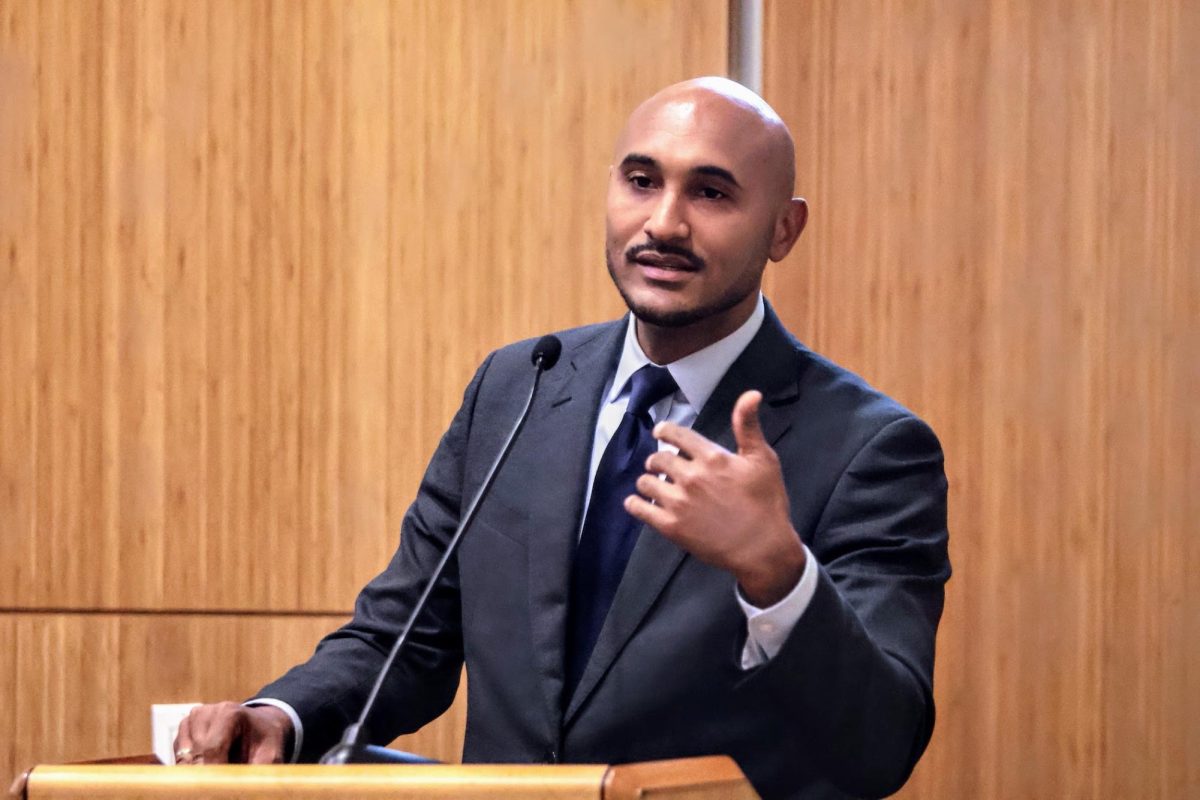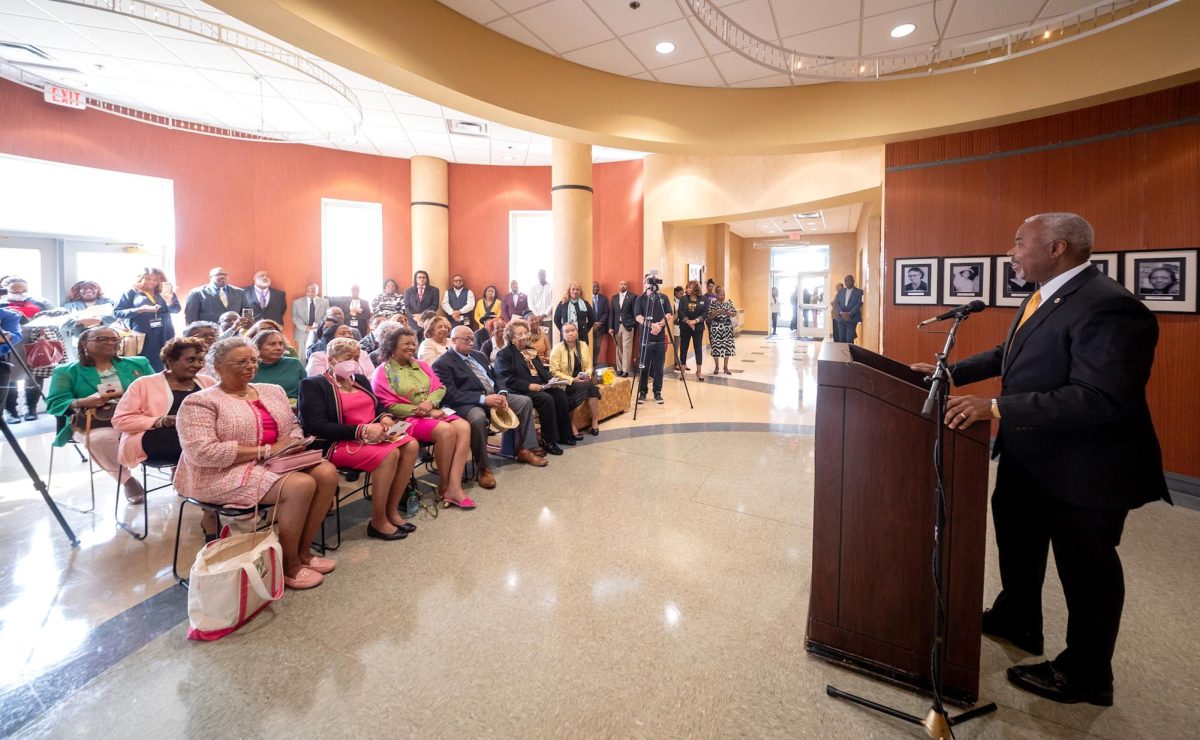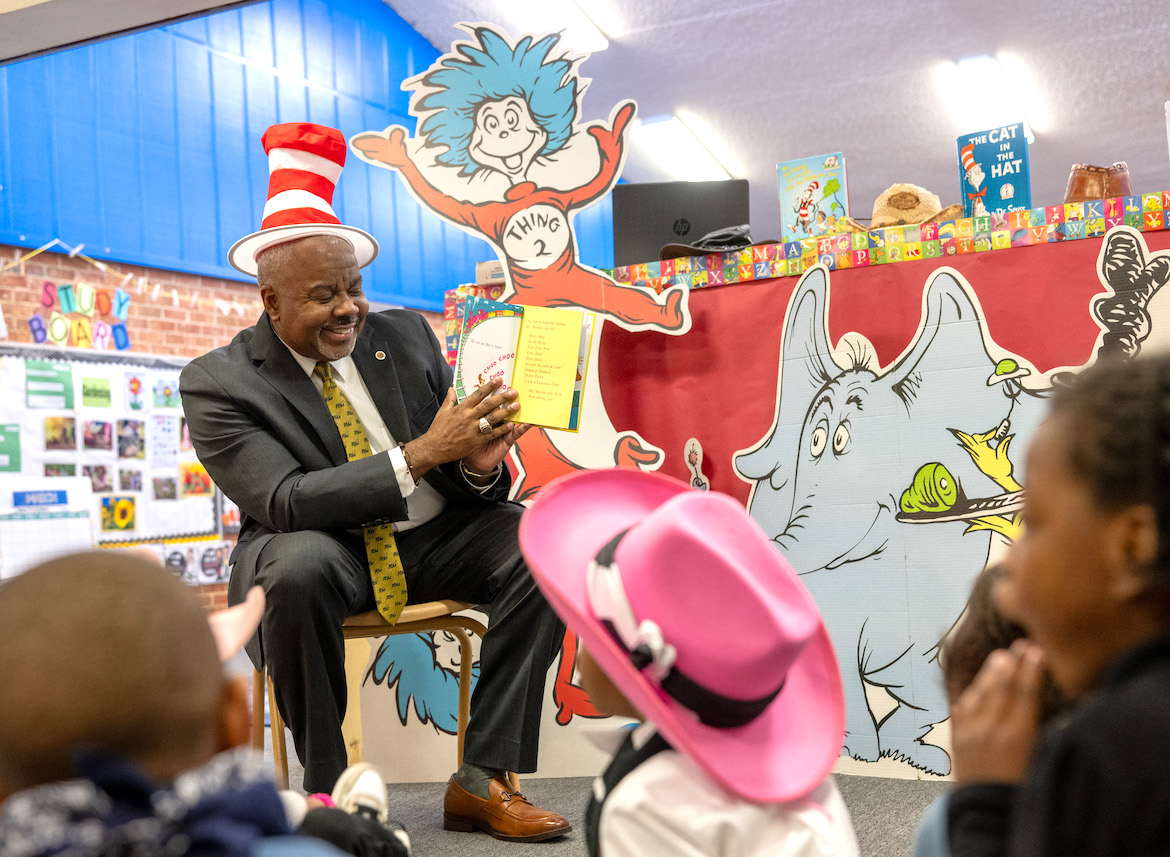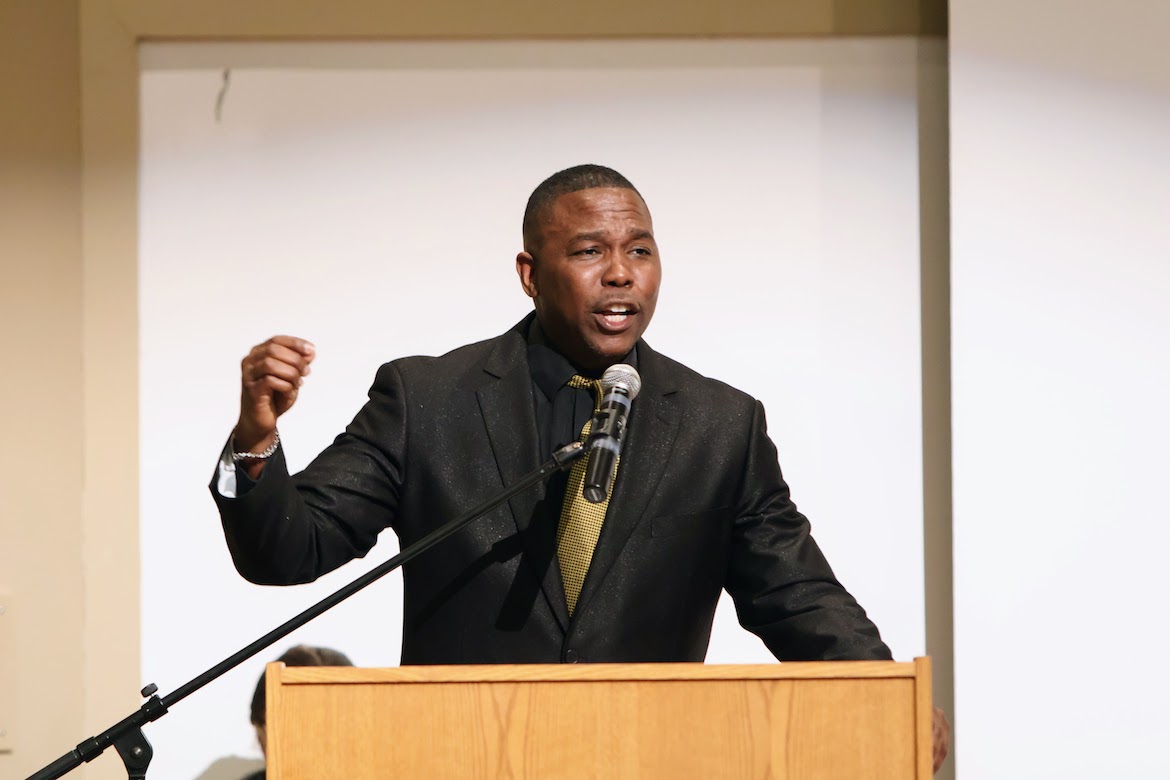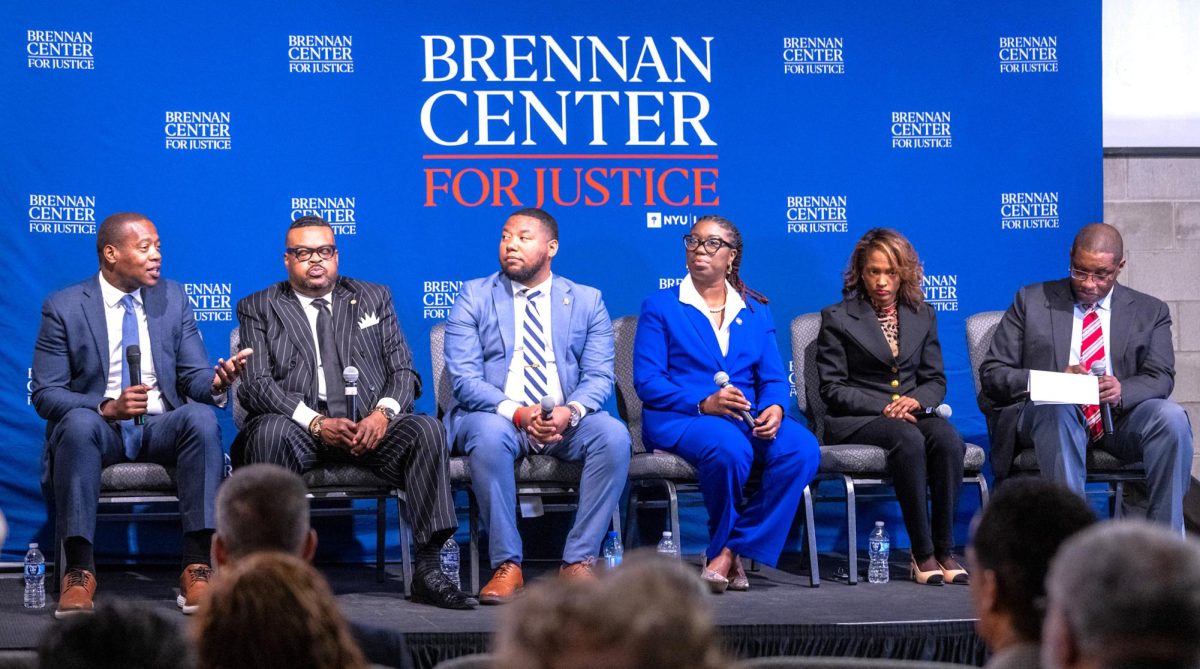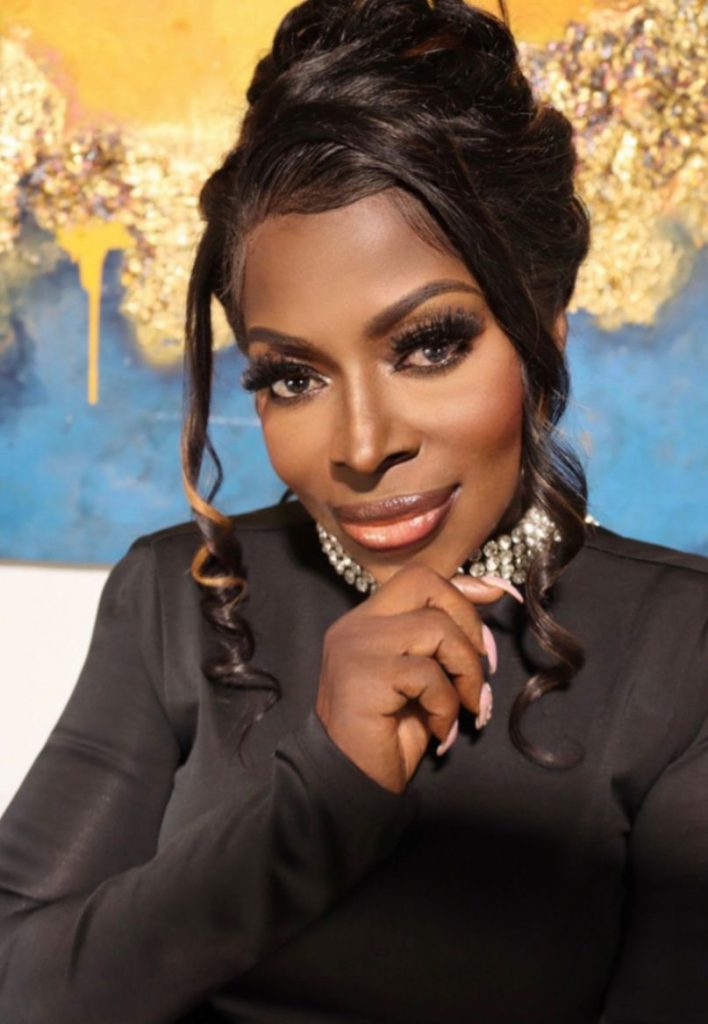Alabama State University students and faculty are very vocal about the legislation passed by the Alabama Senate regarding diversity, equity and inclusion (DEI).
The Alabama Senate recently passed the Senate Bill 129, authored by Sen. Will Barfoot, R-Pike Road, that asks for sweeping changes or cancellations to state agencies and public colleges that currently fund DEI offices and programming.
The bill bans any program that “advocates for a divisive concept.” It also would prohibit higher education institutions from allowing individuals to use a restroom that is different from their sex as assigned at birth.
Derryn Moten, Ph.D., professor and chairman of the university’s history and political science department believes that if the DEI bill becomes law, it will have a negative impact on university programs because it will become illegal for the university to push for diversity, equity and inclusion.
“A federal court ordered ASU and A&M to create a minority scholarship, which operated from 1996 until 2006,” Moten said. “This scholarship ostensibly sought to increase ‘minority students’–non Black–attending ASU. Such an initiative seems unlikely in the current political climate.”
He continued.
“I believe racial tension is getting worse, and it probably has more to do with the two terms of President Barack Obama than with ex-president Donald Trump,” Moten said. “Many people voted for Trump in 2016 as ‘The Great White Hope.’”
Public colleges also are preparing for changes on campuses.
According to al.com, in a message to students and faculty, presidents of the University of Alabama System’s three campuses said leadership and legal counsel are working to determine what actions the campuses will need to take to ensure their programs are in compliance with the law if the bill is signed by Ivey.
“It is important to note that SB 129 defines divisive concepts and DEI programs in specific terms, and it offers several exceptions for accreditation requirements, academic freedom, medical and mental health care, research, recruiting and outreach, and a host of other areas. Please look to official university communications for guidance as we continue to assess the legislation,” the statement read.
“We recognize differences strengthen our campuses and help us successfully prepare students to live and work in a global society. We remain committed to recruiting and retaining outstanding students, faculty and staff from all backgrounds, providing open and equal access to resources and opportunities, and equipping all campus community members for success at our universities and beyond.
However, Robert White, J.D., a professor in the department of humanities worries that with the passing of this bill will deter professors from entertaining important questions with their students.
“I also think that it will impose restrictions on topics that are otherwise worthy of serious scientific analysis,” White said. “So I think it’ll limit the educational experience of students and faculty because there’s so much that we will be afraid of or concerned about talking about.”
According to White, the passing of this bill will give students the opportunity to be more creative in the ways they gather and share data.
“And I don’t think that the bill has that much teeth to it because it has different clauses in it that will still allow for certain topics to be taught,” White said. “But at the same time, it does give state police a segway into the classroom to harass, intimidate, antagonize and penalize faculty and students if need be, if certain topics gain traction in the community.”
While the racial aspect of the bill is the one being focused on, the bill will also affect students who do not conform to traditional gender norms. The university has recently invested in gender fluid bathrooms, but with the passing of this bill, these are at risk of being either deleted or the only gender fluid bathrooms on campus. If the university tried to make more, they would be accused of using state funds to violate the new bill.
According to White, the new bill will force these students to look away from the state for validation.
“Stokely Carmichael said he who has the power to define has the power to control,” White said. “And so understanding political power, how it’s obtained, what its objective is, is still the first course of the day when it comes to academia.”
Jacqueline Trimble, chair of the department of languages and literature suspects the bill is part of a larger political agenda to suppress historical facts.
“I certainly believe that racial tensions are being exposed,” Trimble said. “They have always been there, but people are more likely to say how they really feel, reveal their racism or bias and try openly to disenfranchise certain groups they feel threatened by or just don’t like.”
Despite the damage this might do to historically Black colleges and universities in particular, Trimble also believes that this will negatively affect predominantly white institutions as well.
“I think it will adversely affect students of color and black students at PWI’s because now there will not even be the pretense of inclusion,” Trimble said. “And it will allow other students to remain ignorant about other cultures, races, ethnicities, etc. without anything to counter their ignorance.”
She continued.
“The Trump presidency emboldened white nationalists, racists, sexists and many others to speak out. It’s not that these people weren’t there; it’s that their speech was considered problematic or offensive. That loud base has given people permission to bring out all their ‘isms’ and display them proudly, no matter how stupid, illogical or counter to all evidence those ‘isms’ are. The stupid people and their stupid predilections are running things now. And because it is very difficult to fight nonsense (an argument must be made with at least two legitimate sides), rational people are losing ground. As much as anything, we are in an ideological war undergirded by anti-intellectualism and anti-science. How do you argue with people who live in their guts when their gut feelings are based on nothing but generations of bad information, and those same people refuse every shred of credible evidence as fake news?”


